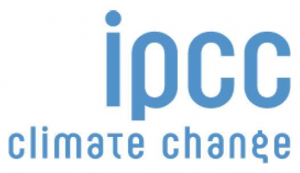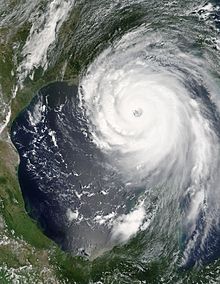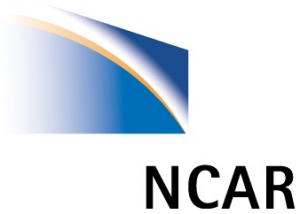Organizations and Natural Events
The Hurricane Season of 2005
The hurricane season of 2005 (July-October) registered seven hurricanes between categories 3 to 5 with 4 of them of category 5 (Dennis, 4 / Emily, 5/ Katrina, 5/ Maria, 3/ Rita, 5/ Wilma, 5 / Beta, 3). This was an alarming cry, and the discussion around the impact of global warming on extreme events intensified greatly, especially after the unprecedented human and material damage caused by Katrina.
 The INTERGOVERNMENTAL PANEL ON CLIMATE CHANGE
The INTERGOVERNMENTAL PANEL ON CLIMATE CHANGE
The Intergovernmental Panel of Climate Change (IPCC) in an intergovernmental scientific body that was created by the United Nations Environment Program (UNEP), and is supported by the World Metrological Organization (WMO). The IPCC reviews and reassesses the publications of scientists worldwide, in 195 countries, to have a better understanding of climate change. The mission fo the IPCC is to check and re-check again the scientific breakthroughs in order to give reports to the United Nations and take the correct decisions regarding climate change. www.ipcc.ch
(RE)INSURANCE COMPANIES
Insurance companies insure individuals from losses, whereas reinsurance companies tend to be more global.
Recently, insurance and reinsurance companies have increasingly linked their business to the hurricane scientific community, since the insurance sector is directly affected by natural disasters. Starting from the nineties, they have been recognized as significant actors in the prevention of climate change risks. In the United States, after disastrous hurricanes such as Dennis, Katrina, Rita and Wilma, some insurers withdrew their business in coastal areas to prevent financial losses combined with extreme events and the growth of urbanization in these regions. Hurricane Katrina represented 30 billion of dollars in insured losses. (In case of disasters, the government would provide the rebuilding resources for the communities without insurance). Insurance and reinsurance companies, especially the major ones such as Munich Re and Swiss Re, also became lobbyists towards governments, calling to combat climate change.
In the hurricane controversy, scientists are increasingly collaborating with experts in insurance companies for mutual work.
Source : The Encyclopedia of Earth, Insurance and reinsurance in a changing climate, 2009. Available online at : http://www.eoearth.org/article/Insurance_and_reinsurance_in_a_changing_climate
The NATIONAL CENTER FOR ATMOSPHERIC RESEARCH
The National Center for Atmospheric Research (NCAR) is a federally funded center of researchers whose mission is primarily “to understand the behavior of the atmosphere and related physical, biological and social systems”. www.ncar.ucar.edu
The NATIONAL HURRICANE CENTER
The National Hurricane Center (NHC) is part of the NOAA and focuses on cyclones and hurricanes and is very active in terms of forecasting and prevention. www.nhc.noaa.gov
The NATIONAL OCEANIC AND ATMOSPHERIC ADMINISTRATION
The National Oceanic and Atmospheric Administration (NOAA) is a federal agency that was created in the 19th century, and gathers today scientists and researchers from diverse scientific backgrounds whose mission is weather forecast and climate monitoring. Through satellite, aviation and marine operations, the NOAA is one of the major actors in the research on climate, storms and extreme events related to atmospheric and oceanic dynamics. www.noaa.gov
Aside from these institutions, organizations and natural events, many brilliant scientists have contributed to studying the link between hurricanes and climate change and can be considered the very life of this controversy. Our team has had the privilege to interview some of them. Read the interviews and find out more about their positions and opinions here.



